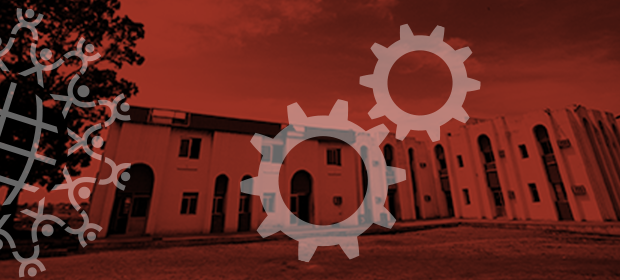Where We Work
See our interactive map


A new report provides the first quantitative estimates of the value of stronger health systems—and the lives they can save.
In 2012, the US Agency for International Development set an ambitious but critical goal: to save the lives of 15 million children and 600,000 mothers between 2012 and 2020. To achieve this goal, the agency is investing in efforts to strengthen local health systems.
These efforts are the central focus of the 2017 Acting on the Call report, which quantifies what many in the global health sector know intuitively—stronger health systems lead to more widely available, higher-quality care, particularly among underserved patient populations and in low-resource settings.
The commitment of the nursing staff and mothers is what makes any survival possible.
Empowering the maternal and child health workforce is the first step toward strengthening local health systems to save the lives of more mothers and their children. For 30 years, Health Volunteers Overseas (HVO) has invested in the global health workforce by providing education, training, and professional development opportunities to health workers in resource-scarce countries.
With help from our partner institutions—the hospitals, clinics, and universities in the countries where we work—we identify and seek to address the needs of the local health workforce. The long-term nature of these international partnerships enables our organization, and the volunteers who help us fulfill our mission, to witness first-hand the impact that education and capacity-building projects can have both for individuals and across health systems.
HVO volunteer Ellen Milan, RNC-NIC, described this impact in her report after returning from a 2015 assignment in the Special Care Baby Unit at Mulago Hospital in Kampala, Uganda:
“HVO volunteer Ann Carroll, BSN, NNP-BC, and I have been working with and mentoring a midwife in Mulago’s Special Care Baby Unit, Damalie Mwogererwa, since 2002. Ann and I have also worked with and mentored Agnes Kirikumwino since our first assignment in Mulago’s SCBU in 2001. Damalie and Agnes are active in identifying teaching needs in other health care facilities in Kampala (and other areas of Uganda) … They believe that teaching health care workers in other facilities may potentially decrease the number of referrals to Mulago and improve neonatal care throughout Uganda.”
By volunteering their time and sharing their expertise with members of the local health workforce in Kampala, Milan and Carroll provided their colleagues at Mulago Hospital with the knowledge and resources they needed to improve the quality and availability of care for infants by strengthening the Ugandan health system on a national scale.
The 2017 Acting on the Call report identified recruitment, retention, and training of child and maternal health workers as significant barriers preventing mothers and their children from accessing care.
Less than half of the world’s physicians, nurses, and midwives work in the 73 countries where 96% of maternal deaths occur. Provider burnout runs high among those who do work in such settings, and limited opportunities for professional advancement contribute to “brain drain,” further reducing the number of trained health workers in these already underserved regions.
A health system is only as strong as the health workers at its core.
Support, mentorship, and opportunities for growth can help sustain health workers who are struggling to deliver effective care in the face of overwhelmingly difficult circumstances. The ability to maintain and grow the number of skilled health professionals working in resource-scarce countries is essential to improving patient outcomes in those countries.
As Carroll said after working in the Special Care Baby Unit at Mulago Hospital, “The commitment of the nursing staff and mothers of these babies is what makes any survival possible.”
To save the lives of 15 million children and 600,000 mothers by 2020, we need to invest more heavily in the health workers who make survival possible. Efforts to strengthen local health systems are also essential to achieving this objective, but a health system is only as strong as the health workers at its core.
HVO volunteers such as Milan and Carroll have implemented a number of concrete interventions to reduce infant and maternal mortality at Mulago Hospital, including introducing a neonatal resuscitation course and improved growth monitoring and documentation processes.
But without the support and mentorship of dedicated volunteers like Milan and Carroll, staff turnover and loss of personnel may have prevented these interventions from being carried out.
“[The volunteers] have certainly made the Department of Nursing a better place to work,” said Speciosa Mbabali, the Head of the Department of Nursing at Mulago Hospital, in 2002. “We know we are not alone in our efforts to improve nursing education and health care in Uganda.”
These same sentiments were reflected in Carroll’s recent trip report, written more than a decade later: “I continue to return to the Special Care Nursery because of the nursing staff. I have been told that the volunteers boost their morale and give them hope so that they continue to work under these most challenging conditions.”
Reducing the challenges faced by the health workers at Mulago Hospital and our other partner institutions is one objective of HVO’s work, but our primary focus remains building the capacity of the local health workforce to meet and overcome these challenges.
Diseases and complications will always pose a threat to the health of mothers and their children, but we can combat these threats by building stronger health systems, one health worker at a time.
Get the latest updates from the blog and eNews




